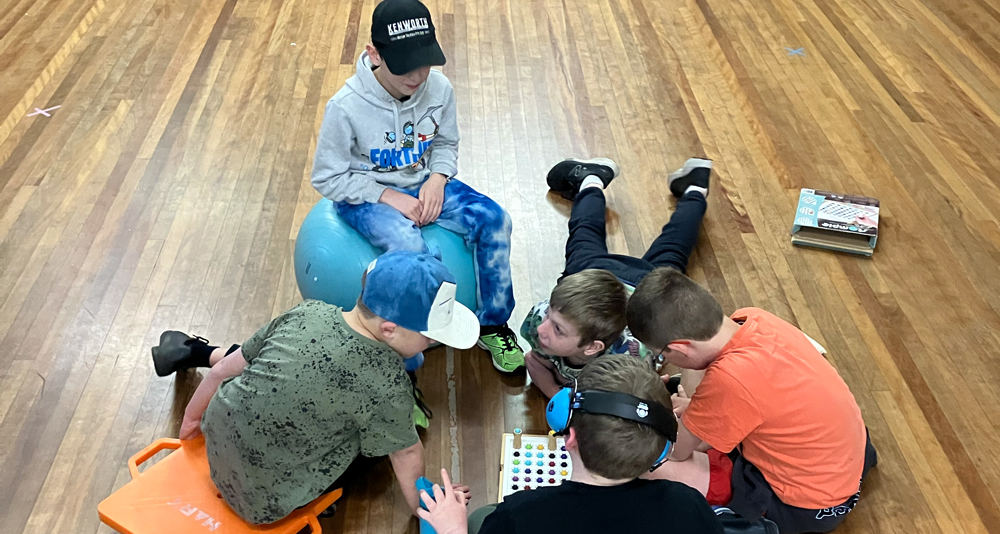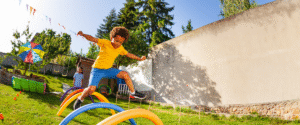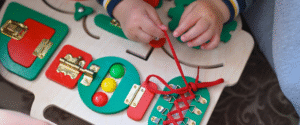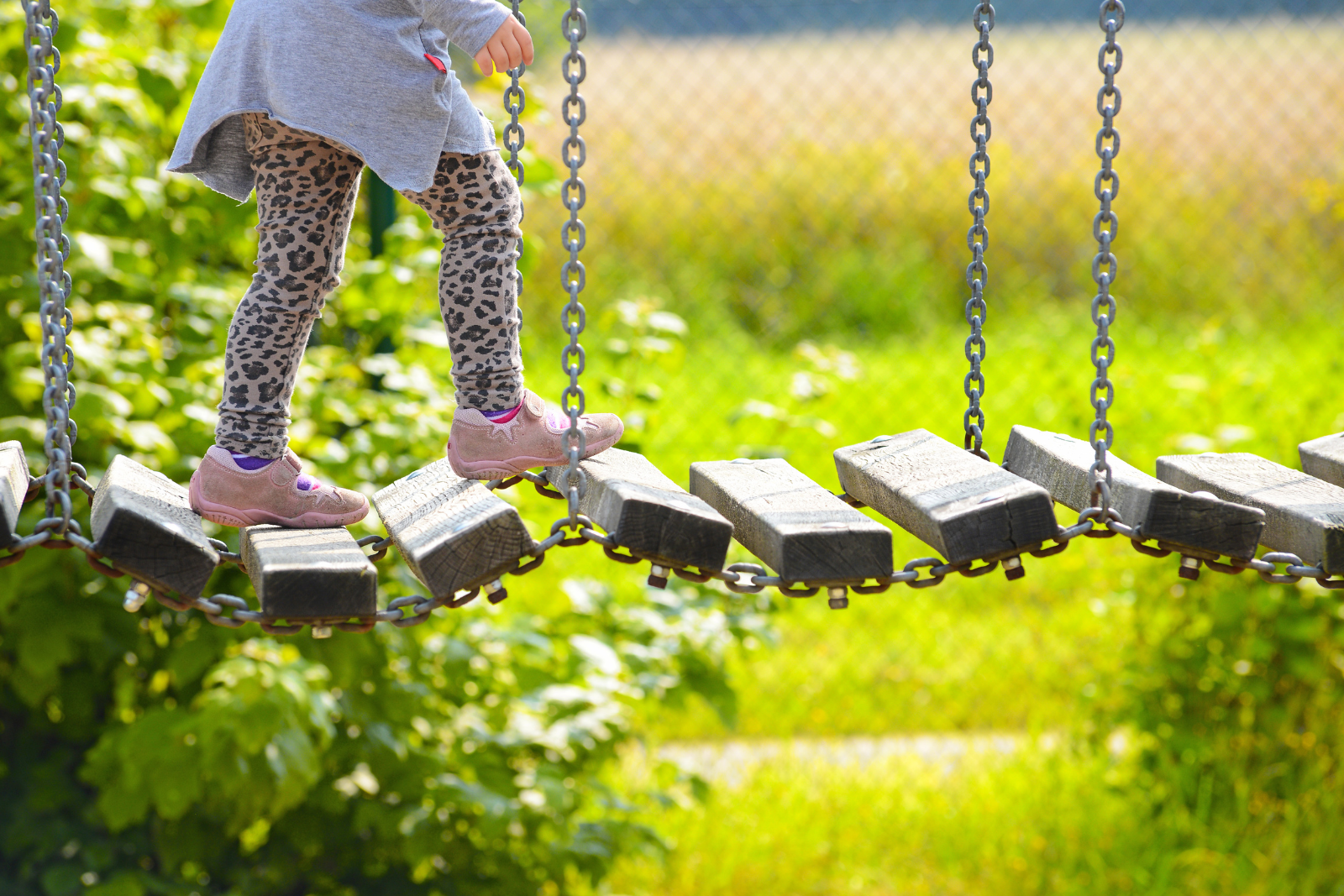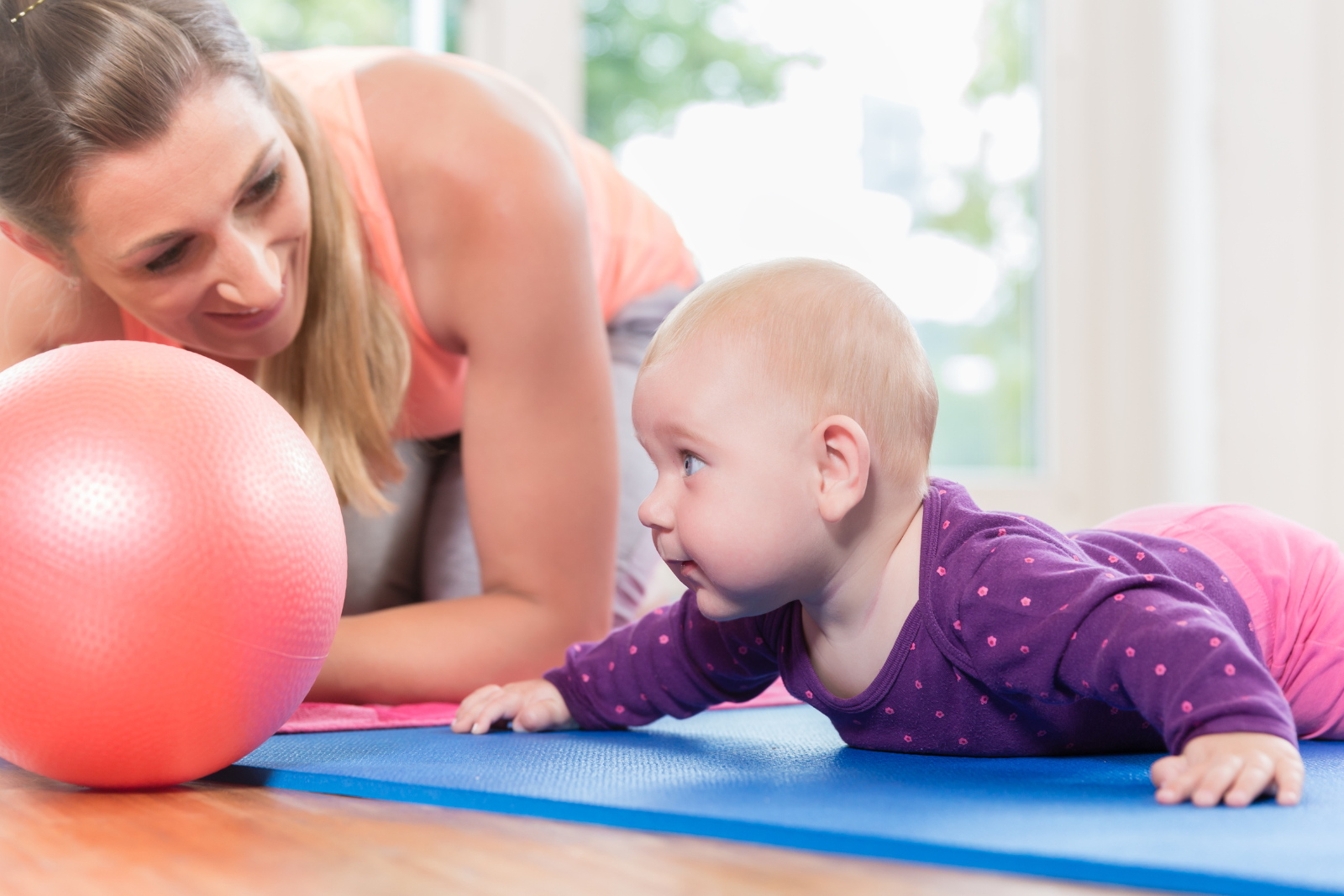
UNDERSTANDING REFLEXES FOR GROSS MOTOR DEVELOPMENT
Over the past few years, during June, we have covered various aspects of Gross Motor Skills, including Core Strength, Muscle Tone, Motor Planning and Coordination and Gross Motor Developmental Milestones. Despite all this, there’s still more to share about this fascinating topic.
Continuing with our theme of transitions, let’s start at the very beginning of movement development, which begins in utero, further develops upon birth, and builds the foundational movement patterns followed by all human beings – Primitive Reflexes!
What are Primitive Reflexes?
Primitive Reflexes are involuntary motor responses that are genetically part of a newborn’s structure and makeup. They form the primary movement patterns on which all our gross and fine motor skill development is based, enabling us to do everything we do today. These foundational movement patterns provide postural support for our daily activities and work in conjunction with sensory systems like the vestibular, proprioceptive, and tactile systems. How cool is that!
What is the Purpose of Primitive Reflexes?
Primitive reflexes provide the human body with foundational movement patterns on which we can base all our gross and fine motor skill development. These patterns are foundational in all movement and postural patterns we engage in daily.
“At the beginning they are necessary for the nutrition, survival, protection of the new-born, and later in life they are important for the process of learning, communication, emotions, motivation. In typical development, primary reflexes are naturally inhibited in particular order during the first year; they are displaced by substitutional reflexes called postural reflexes. Postural reflexes are more mature models of motor responses that coordinate balance, coordination and senso-motor development.” (Rashikj-canevska, & Mohajlovska, 2020)
Examples of Primitive Reflexes and What Do They Do?
Here are some examples of Primitive Reflexes and a brief overview of their role and appearance. Please note that these are only some of the many primitive reflexes present in our bodies.
The Moro Reflex:
The Moro reflex, also known as the “Startle Reflex,” is observed when a baby’s head suddenly shifts, or if their head falls backward or is startled by a sudden movement, bright light, or loud sound. The baby will throw their arms away from their body and extend their neck. They may also open their fingers, cry or make no sound. The baby will then quickly bring their arms back together and relax them.
This reflex is crucial for developing future flexion and extension movement patterns and integrating the adrenal ‘fight or flight’ response to surprises or stress, as well as the connection to the mother in ensuring safety when exploring the world around them through development space and is integrated (no longer present) around six months of age.
Spinal Galant Reflex:
The Spinal Galant Reflex is an involuntary movement pattern in infants, thought to be crucial during the natural birthing process. Contractions during labour stimulate the lower back, causing hip movement that helps the baby descend the birth canal, which in turn aids in developing the hip movements necessary for crawling and walking. The Spinal Galant is activated by stimuli to the back, such as stroking down one side of the spine while the infant is on their stomach, encouraging hip movement. This can also be done when the child is on all fours. This reflex is also involved in developing the vestibular system and is linked to the Asymmetrical Tonic Neck Reflex (ATNR), which also plays a role in birth. The Spinal Galant Reflex is often associated with urination. Developing in utero around 20 weeks, the Spinal Galant Reflex should be fully developed at birth and is typically integrated between three to nine months of age.
Tonic Labyrinthine Reflex (TLR):
The Tonic Labyrinthine Reflex (TLR) appears in infants when they lie on their stomachs in a pose resembling Superman’s.
It consists of two types of movements: forward and backward. This reflex is triggered by either bending (forward) or extending (backward) the neck – moving the head up or down. When infants look down (neck flexion), their arms and legs tend to flex or curl towards the body. Equally, when infants look up (neck extension), their arms and legs extend (like Superman!). The TLR is believed to assist infants in adapting to the challenges posed by gravity and affects muscle tone and movement of arms, legs, neck, and trunk. Since head movements activate the TLR, this reflex is closely linked to the Moro Reflex. The integration of this reflex typically occurs around the age of four months.
Asymmetrical Tonic Neck Reflex (ATNR):
The Asymmetrical Tonic Neck Reflex (ATNR) is commonly known as the “fencing reflex” because when a baby lies on their back and turns their head to one side, the arm on that same side will extend, while the opposite arm will flex towards the body – giving the appearance of being ready to fence. The ATNR is activated by a simple head turn to either the right or the left. The kicking sensation felt in the womb is actually due to the ATNR! Additionally, this reflex aids in the birthing process and impacts balance, muscle tone, and hand-eye coordination. This reflex is expected to be integrated around six months of age.
Symmetrical Tonic Neck Reflex (STNR):
The Symmetrical Tonic Neck Reflex (STNR) emerges between six and nine months of age and is crucial for transitioning from lying on the belly to crawling. This reflex is connected to the TLR. The STNR splits the body into two halves – the lower half and the upper half. There are also two types of movements – flexion and extension. As the baby transitions from lying on their belly to being on all fours, they will extend their neck, look up, flex their neck, and look down. These movements will then trigger responses in the upper and lower limbs. When the neck extends, the arms will straighten while the legs will bend. Conversely, when the neck flexes, the arms will bend while the legs will straighten – this moves the baby into a position similar to a downward-facing dog.
You know babies’ “rocking” motion on all fours just before they start crawling? That might be the STNR starting to integrate! The STNR should be fully integrated and no longer present by the time the baby reaches eleven months old.
What If Reflexes Do Not Integrate?
All reflexes are designed to support and help the infant grow properly and safely. As the babies get older and begin to mature, the reflexes are no longer needed, often taking a back seat (integration), and the higher brain can take control, allowing the body to control and move with thoughts behind it. This is a normal and essential part of our baby’s development. However, when reflexes persist, they can prevent the emergence of more complex movement patterns, which can present delays in achieving developmental milestones.
Each reflex has its own individual way of presenting, as well as its particular symptoms related to the reflex not being integrated. Persistent primitive reflexes can be associated with learning difficulties, emotional challenges and attention. It is recommended to discuss your concerns with your Occupational Therapist or Health Professional who specialises in primitive reflexes to determine if reflexes are impacting your child or infant’s development.
Additionally, there was a study completed by Rashikj-Canevska, O & Mihajlovska, M (2020) that looked at the persistence of primitive reflexes and associated problems in children and identified these potential factors for unintegrated primitive reflexes, including the ATNR:
- Stress during pregnancy
- Substance abuse during pregnancy
- Cesarean section birth
- Brain damage during labour
- Premature and low birth weight
- Significant illness during the first year of life
- Insufficient stimulation and tummy positioning
- Lack of free movement time on the floor
- Stressful environment
- Not enough nourishment/insufficient weight gain
Can Reflexes Reappear After Being Integrated?
Yes, they can. If a child has successfully integrated their primitive reflexes, a sudden or chronic bout of trauma, stress, or injury can reactivate these reflexes. This has even happened to me personally in my adult years based on challenging personal situations and the increased stress due to COVID-19 during the years 2020 and 2021.
“Routine testing of primitive reflexes helps determine the causes of disharmonic development, behavioural problems or learning difficulties, and the use of the reflex integration methods leads to a significant improvement of the condition.” (Rashikj-canevska, & Mohajlovska, 2020)
How can Occupational Therapists help?
Pediatric occupational therapists, trained in primitive reflexes, among other professional development courses, are ideal for supporting your child. By observing and testing different movement patterns, an OT can identify whether a primitive reflex is still present during movement activities. When a reflex is apparent, the OT can provide the child with various types of sensory stimulation and engage in activities that support reflex integration.
Can Other Health Professionals Help with Integrating Reflexes?
Occupational Therapists can work closely with Chiropractors who have training in Retained Neonatal Reflexes. They use specific techniques to assist in integrating these reflexes. Other health professionals, such as Paediatric Physiotherapists, can also assist in integrating these reflexes.
Primitive reflexes are complex, and not all health professionals have the training to support the integration of reflexes. It can be complex as the human body is complex; however, it is very important. Remember that every case is unique, and if your child matches some of the characteristics mentioned above or you have observed them, that does not necessarily mean that they have retained that reflex. If you are concerned about your child’s abilities and how they may relate to retained reflexes, we recommend talking to your pediatrician.
Don’t let unintegrated reflexes hold your child back. Our expert team is here to help! Connect with us today to learn how we can support your child’s development and ensure they confidently reach their milestones. Contact us now and take the first step towards a brighter future!
If you’d like to chat more, please don’t hesitate to contact us today! Call us on 0477 708 217 or email admin@exploreandsoar.com.au
Until Next Time,
Jess
PUBLISHED JUNE 2024
Case-Smith, J. (2010). Development of Childhood Occupations. In Occupational Therapy for Children. 6thEdition. Mosby Elsevier.
Berk, L.E (2009). Infancy: Early Learning, Motor Skills, and Perceptual Capacities. In Child Development. 8thEdition. Pearson International Edition.


